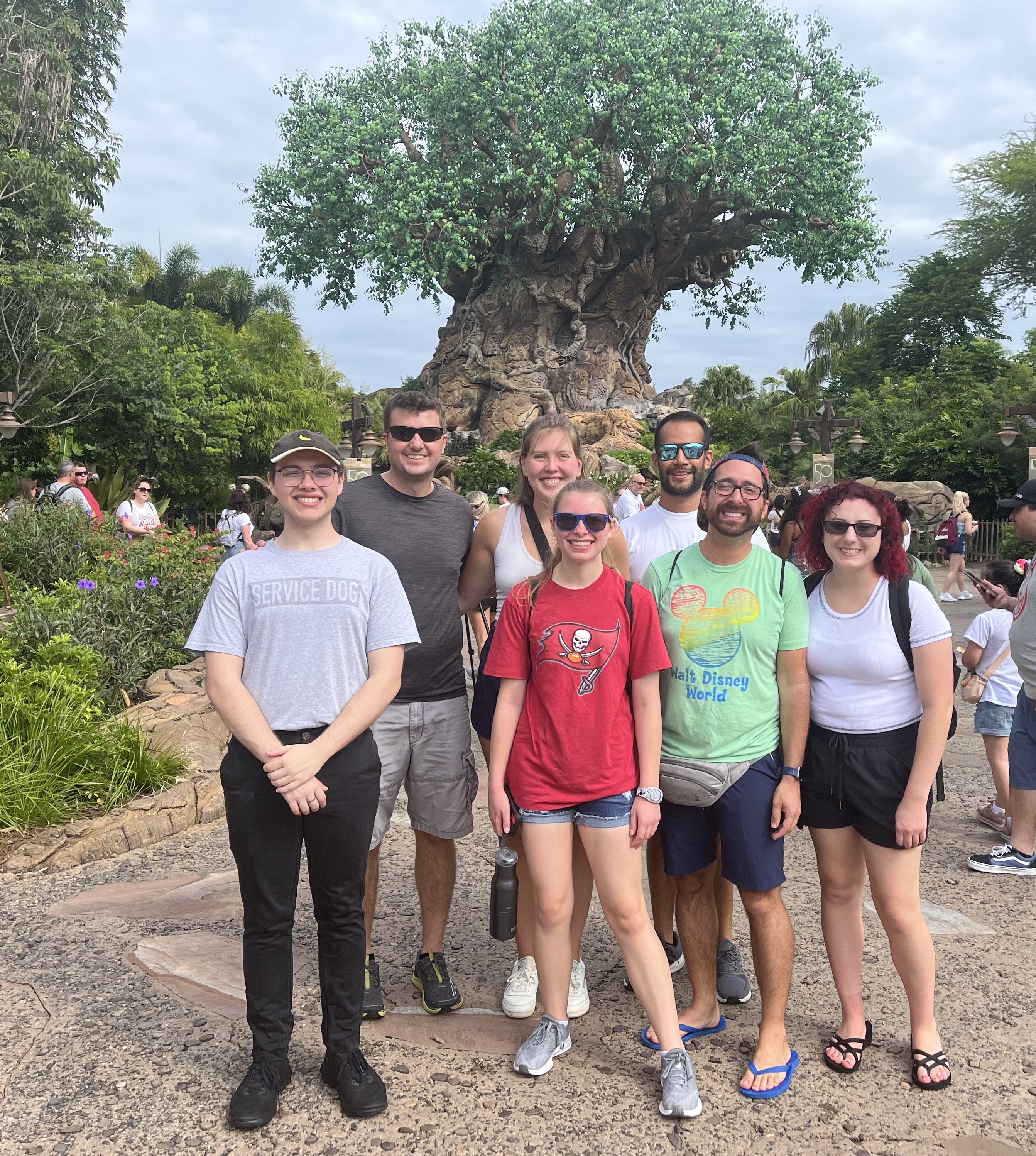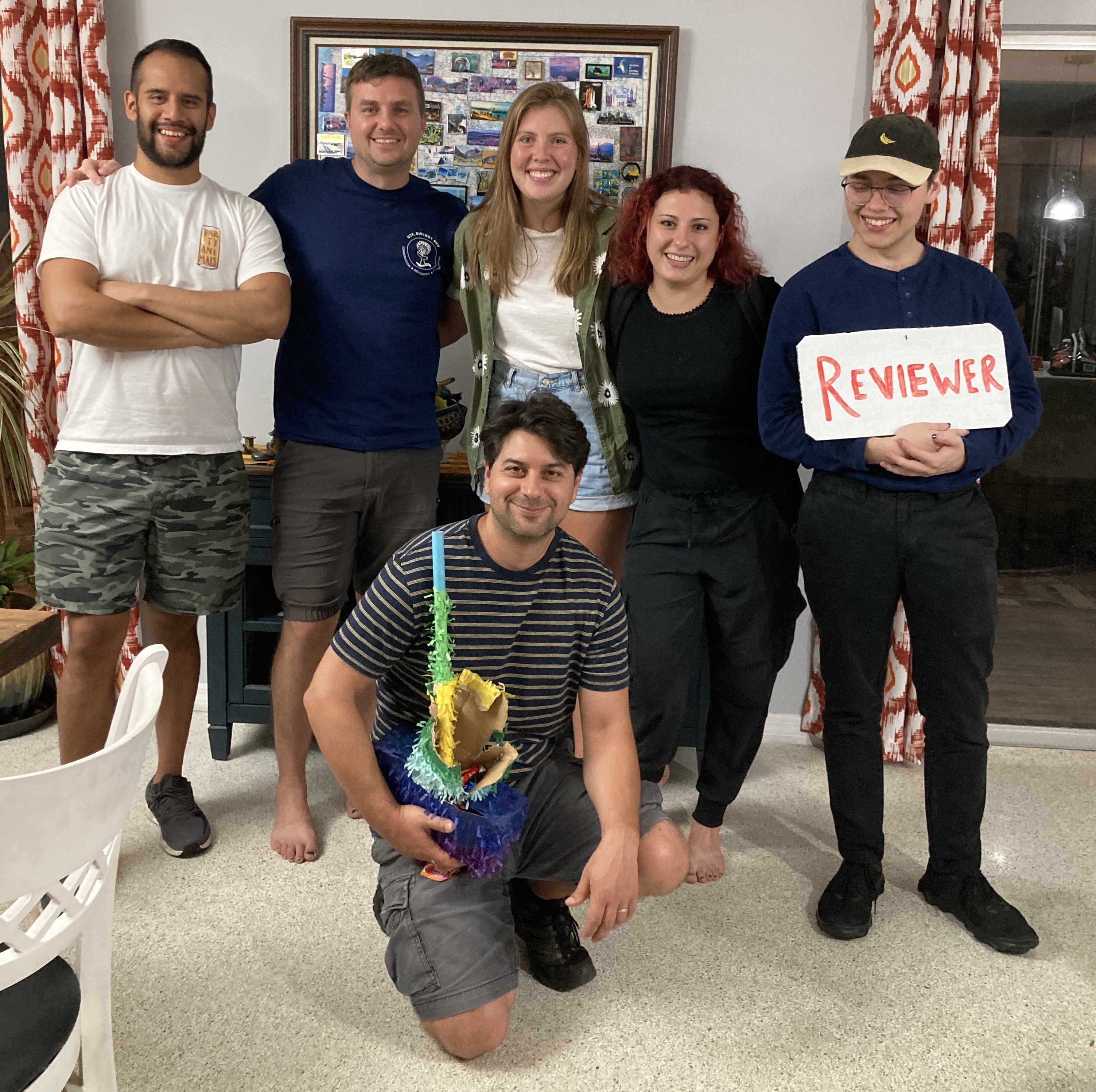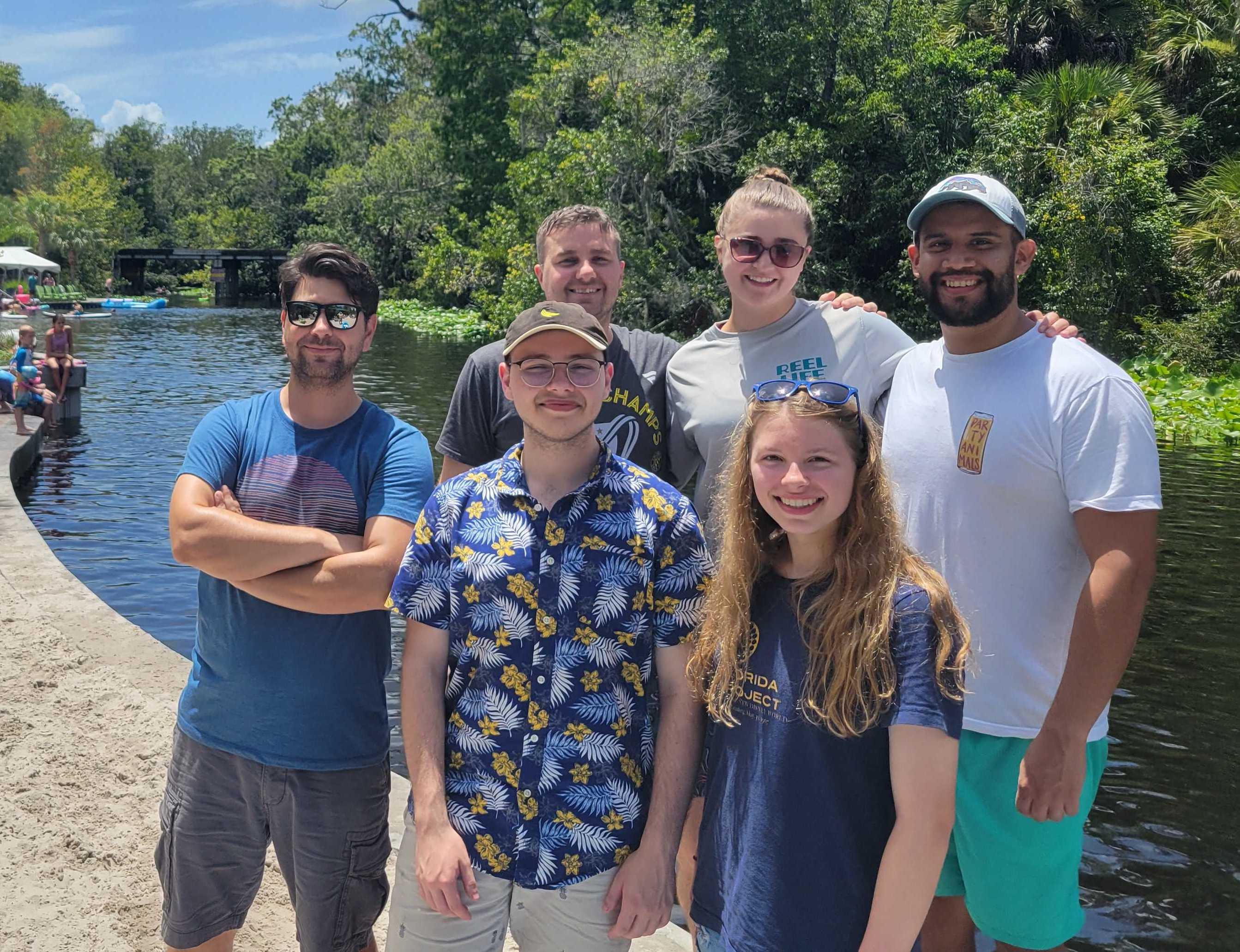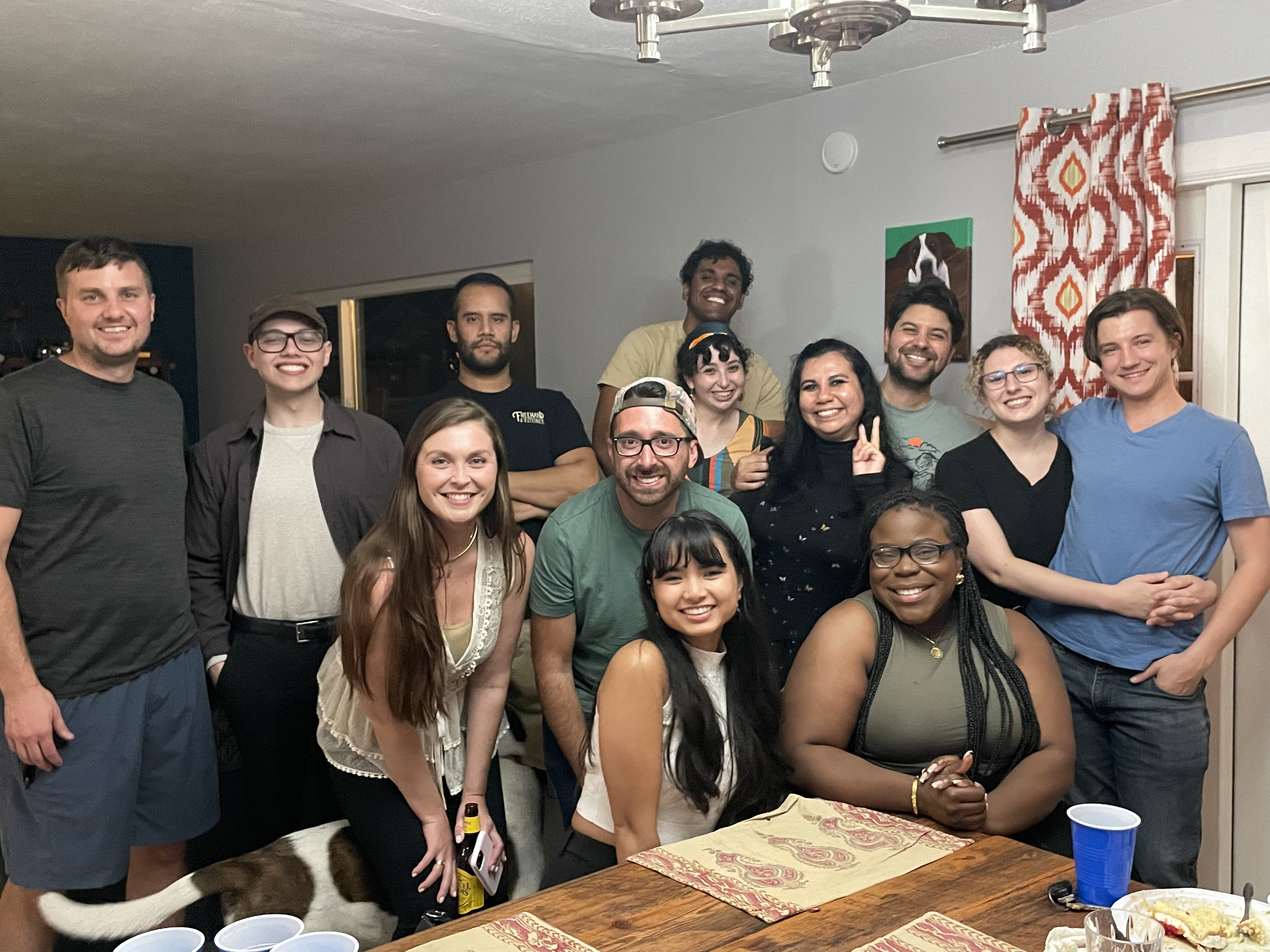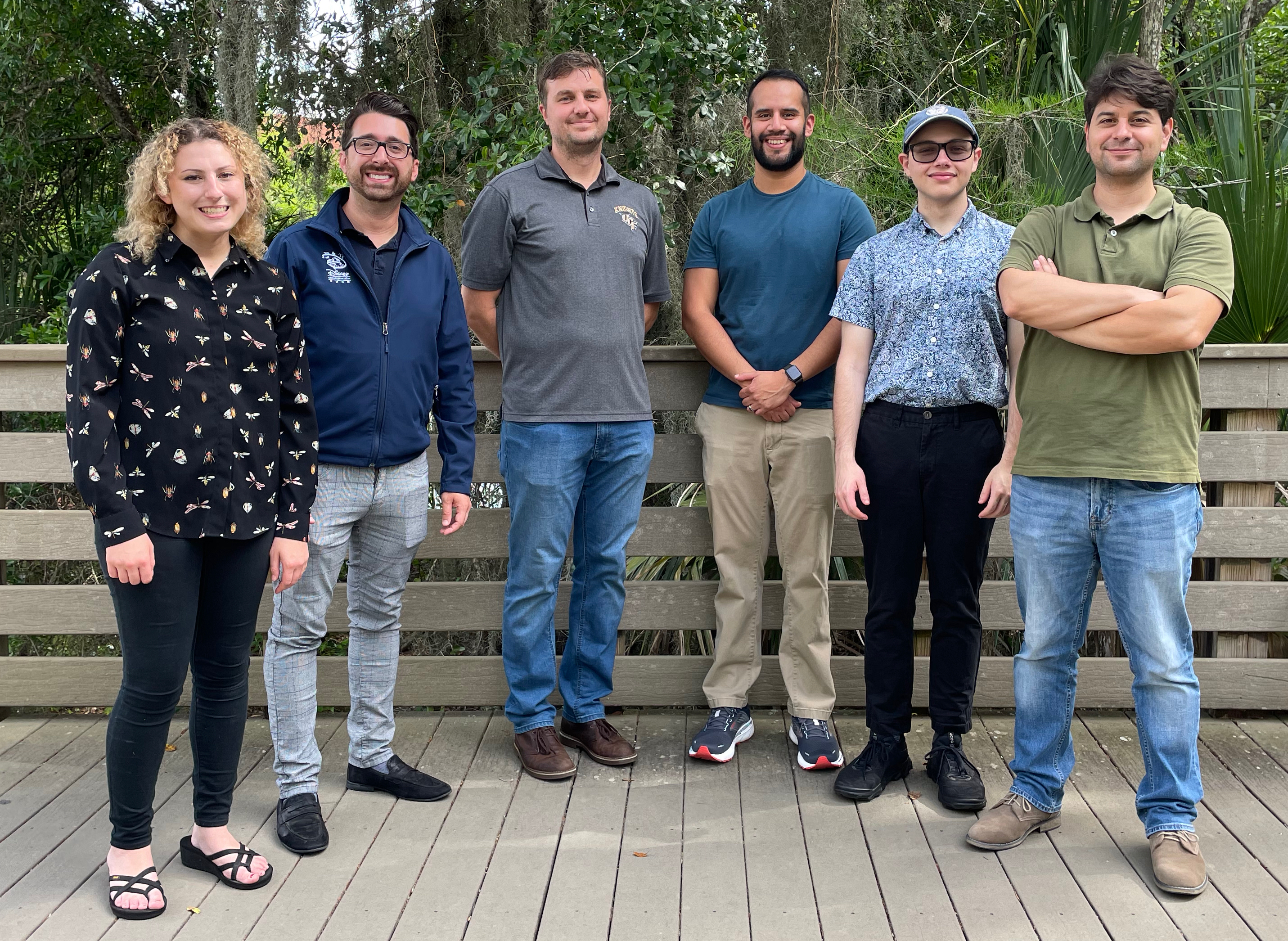Team
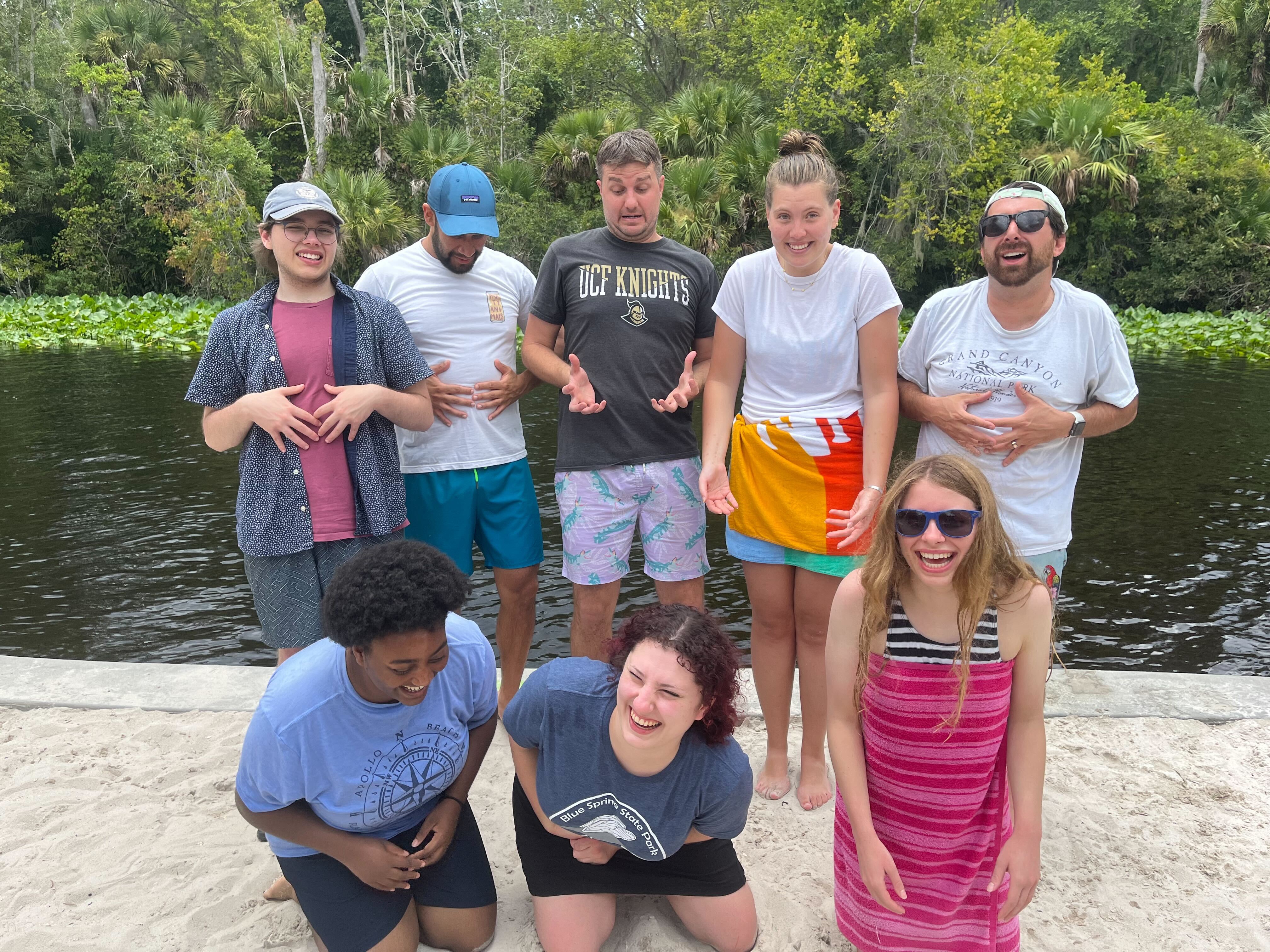
Additional Lab Photos: click to enlarge
-
Dr. Robert R. Fitak, Assistant Professor
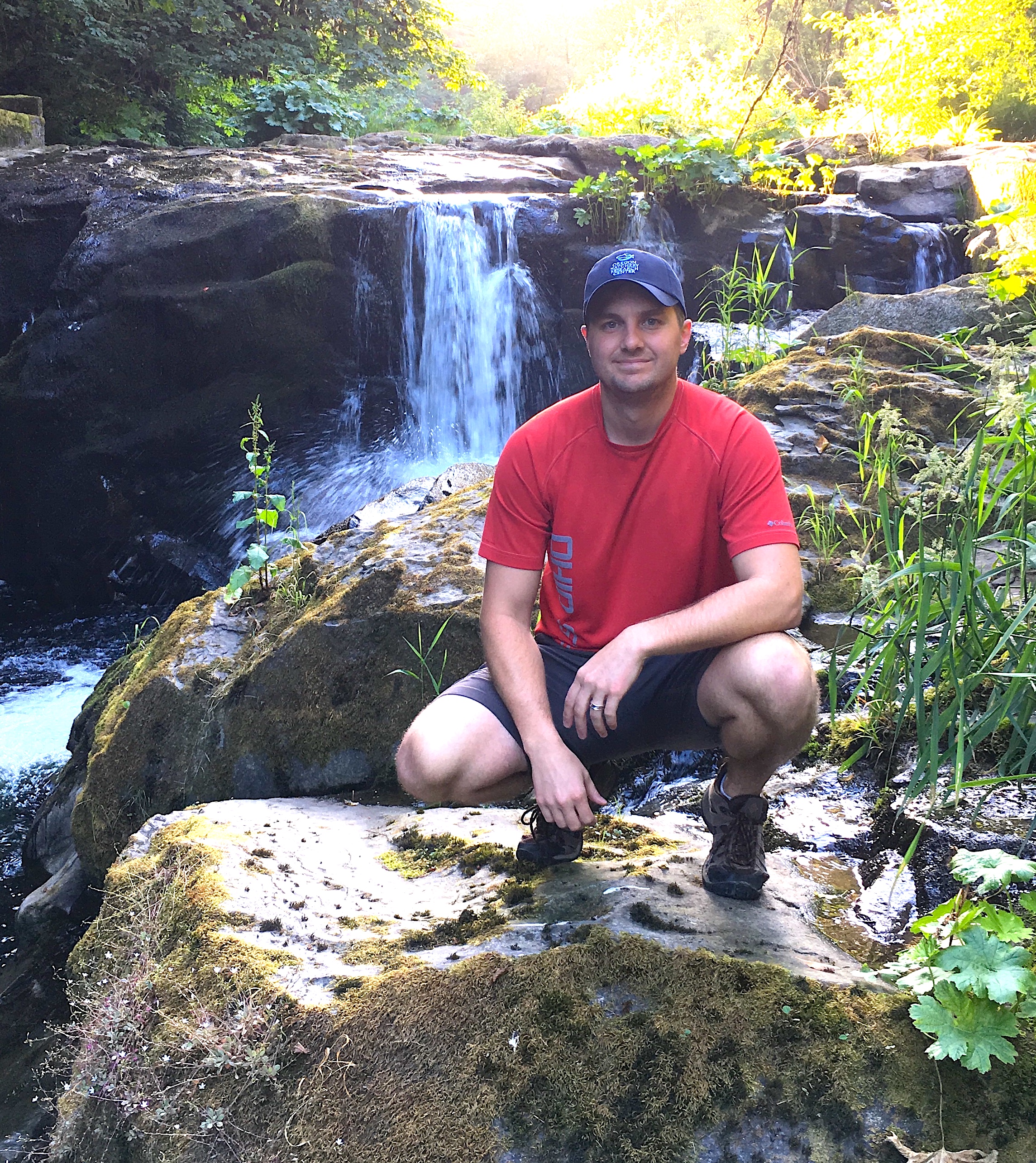
I am an Assistant Professor in the Department of Biology at the University of Central Florida and also hold an appointment as a core member of the Genomics and Bioinformatics Cluster. I completed my BS in molecular genetics at The Ohio State University and PhD in the Genetics Interdisciplinary Program at the University of Arizona in the laboratory of Dr. Melanie Culver. My early research involved the development of SNP markers to monitor puma populations in the southwestern USA and a conservation genomic analysis of the endangered Mexican wolf (Canis lupus baileyi). I have also performed a variety of conservation genetic and genomic projects in many other protected species including Anodontid mussels, Mt. Graham red squirrels, Old World camels, Florida panthers, etc. Recently, I have focused on applying genomic techniques to studies of unique sensory physiology, such as magnetoreception and dermal photoreception. I also am very interested in studying wildlife diseases, such as the emerging "Snake Fungus" (Ophidiomyces) pathogen, and teach bioinformatics at the Genomics of Disease in Wildlife Workshop every June at Colorado State University. In my spare time, I do a lot of running, hiking, herping, furniture making, in addition to playing lots of soccer.
-
Taryn Gustafson, Graduate Student (PhD)
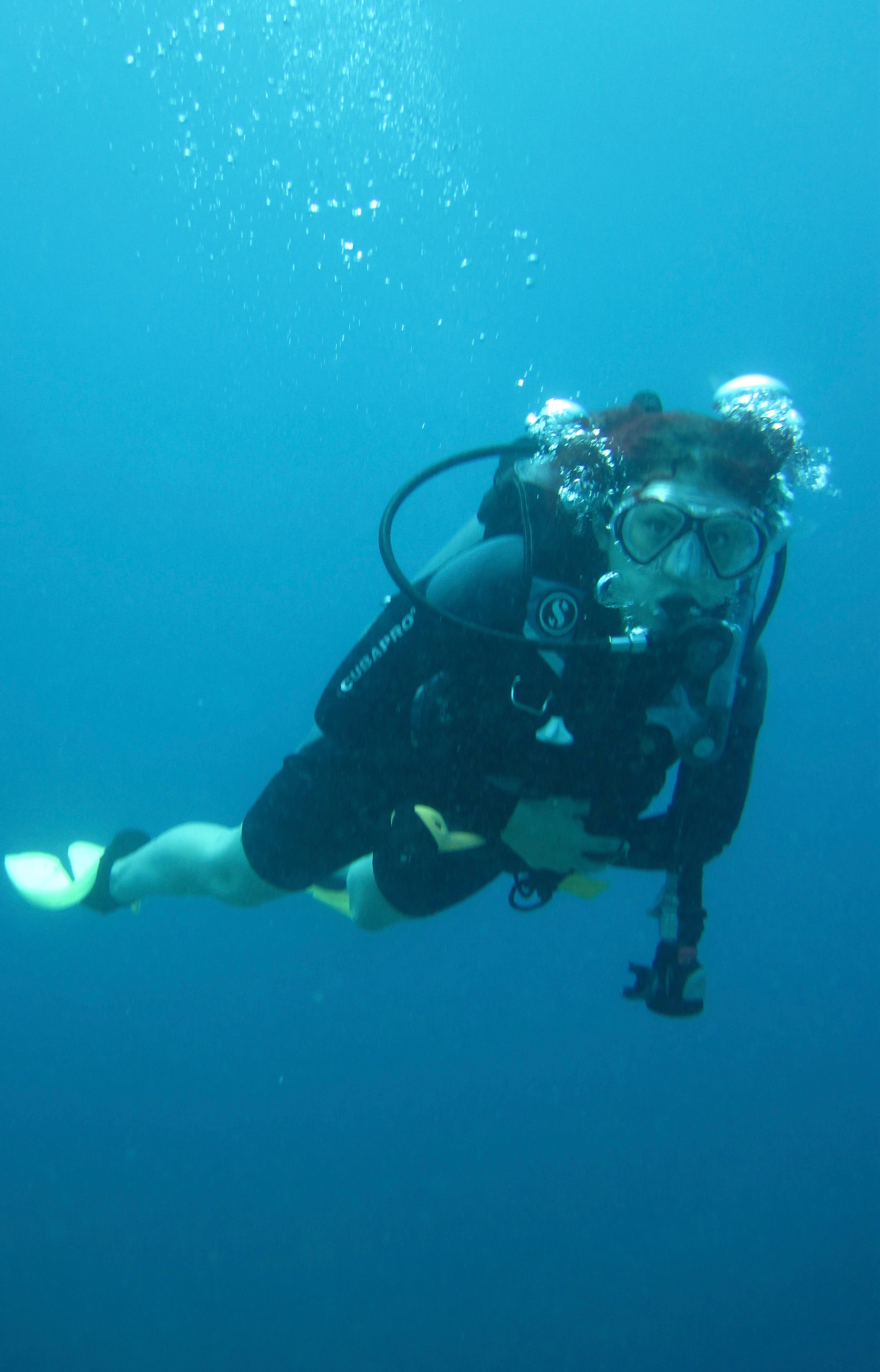
An avid tide pooler and scuba diver from Seattle, Taryn grew up fascinated by the behavior of marine animals. She is particularly fond of the remarkably intelligent giant Pacific octopus. Taryn decided to attend graduate school to investigate the molecular basis of cognition in octopuses and other cephalopods. Her research interests stem from a lifelong curiosity about animal behavior and a passion for comparative neuroscience. Taryn graduated from Western Washington University with a B.S. in Behavioral Neuroscience. In the Rose Learning and Memory Lab, Taryn studied associative learning and oxidative stress in the model C. elegans. Following graduate school, she plans to pursue post-doctoral training and to eventually become a faculty researcher in comparative neurobiology. In the meantime, Taryn may be found exploring Florida’s scuba diving sites during her study breaks.
-
George Zaragoza, Graduate Student (PhD)
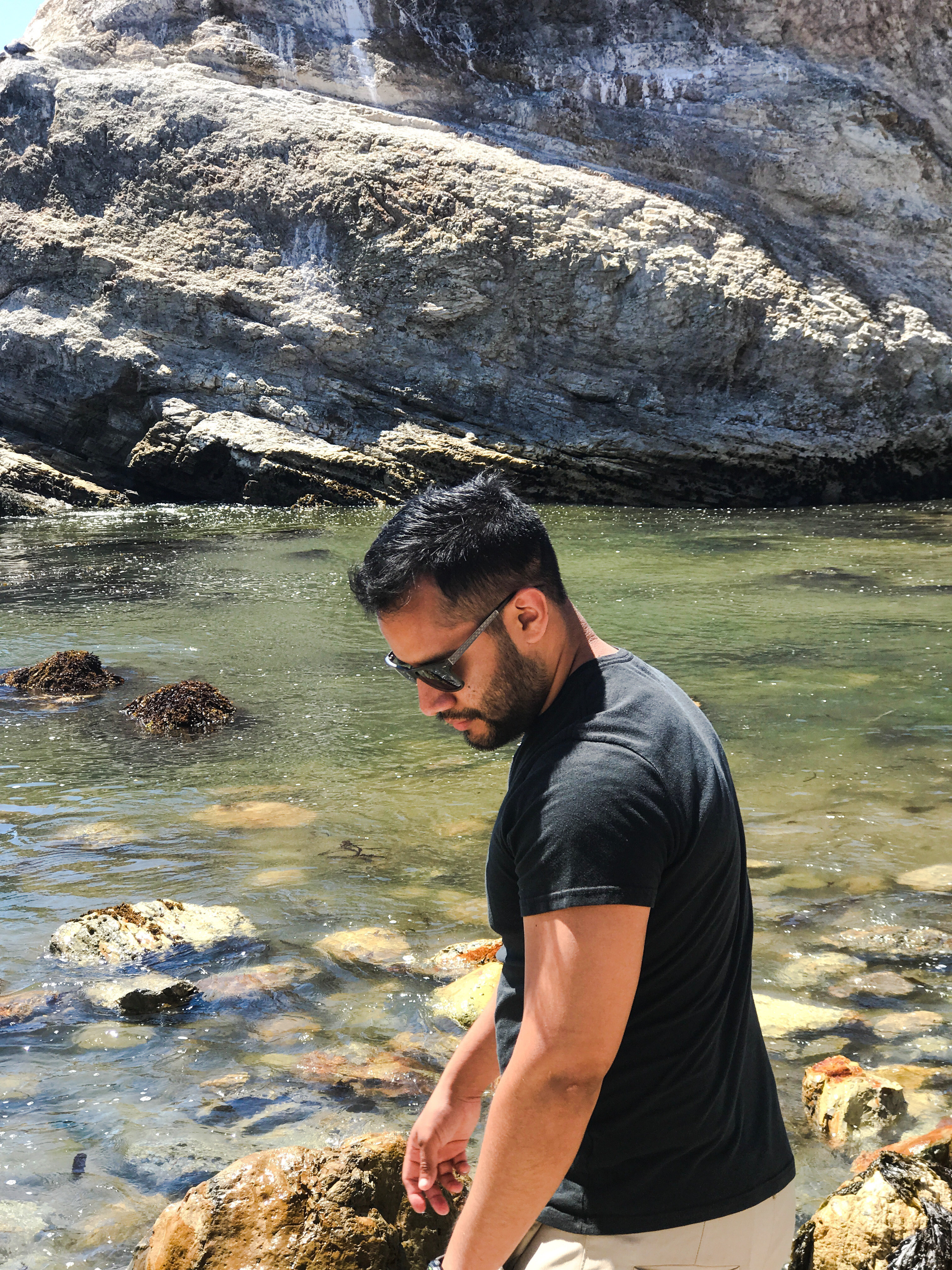
George earned his B.S. from the University of California - Davis, where he worked as a technician in several labs studying topics including the ovipositor morphology of invasive spotted wing Drosophila (Drosophia suzukii), tritrophic interactions in plant defense systems of sticky tarweed (Madia elegans), and habitat use by western pond turtles (Actinemys marmorata), also assisting with capture surveys of California invasive northern water snakes (Nerodia sipedon). After graduating from UC Davis, George worked in Bayer’s biological agricultural research and development group for 5 years as a member of their entomology team, working closely with scientists from several fields including data science and bioinformatics.
George returned to school to develop as a conservation scientist. He is broadly interested in studying how changing environments affect organisms at a genomic level and how this may influence phenotypic and behavioral traits and biodiversity. -
Julianna Martin, Graduate Student (PhD)
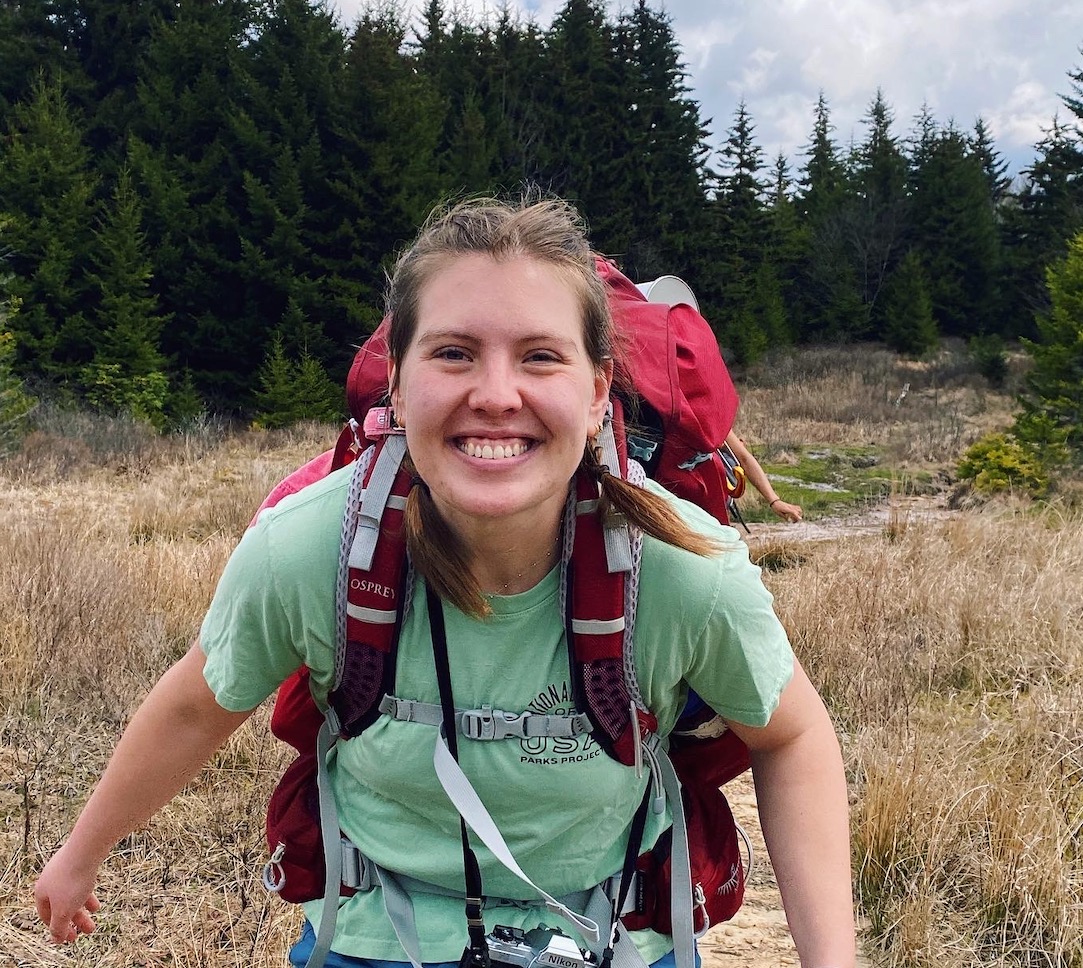
Julianna earned her B.S. at St. Mary’s College of Maryland where she studied biology and math and developed a love for costal and marine biology. After graduating, Julianna worked at The American Genome Center, an academic genome sequencing center associated with the Uniformed Services University of the Health Sciences. She supported research projects investigating how genetic factors influence human health outcomes and developed a keen interest in how genomics techniques can be applied to ecological research questions. As a PhD student at UCF, she plans to further explore these types of questions by combining her interests in genomics and marine biology. When she’s not in the lab, Julianna can be often be found rock climbing, hiking, or camping.
-
Andrew Alba, Graduate Student (PhD)
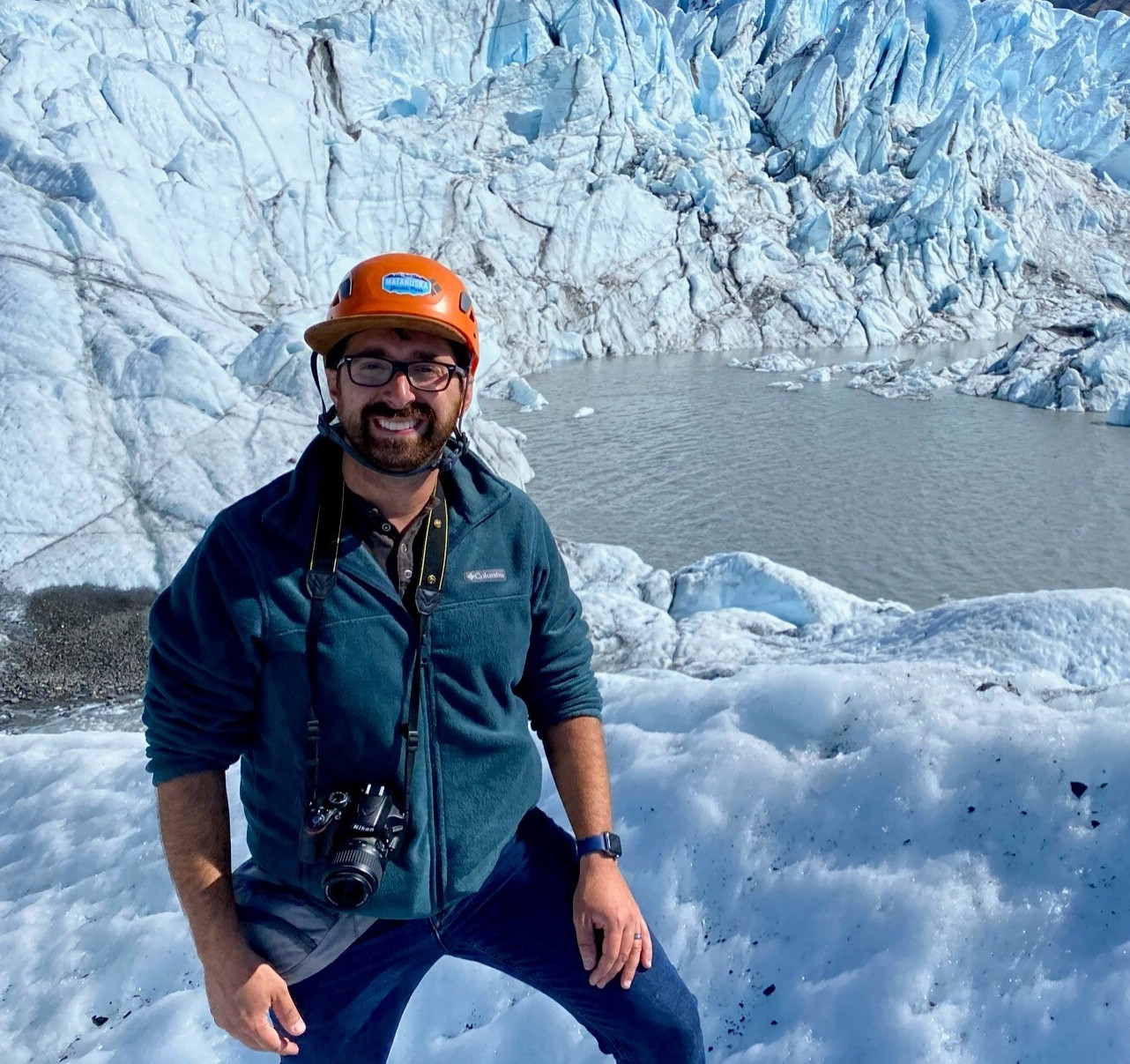
Andrew earned his B.S. at St. John Fisher University in Rochester, New York, where he studied innate olfactory responses and gustatory preferences in the domestic chicken. He then completed a Master’s degree at the University of Missouri-Columbia. There, Andrew’s thesis focused on identifying the optimal environmental conditions and husbandry factors that contribute to breeding success in the highly endangered Guam kingfisher (Todiramphus cinnamominus), which survives only in zoos and conservation breeding facilities. Through his various academic and volunteer experiences, including a summer in South Africa rehabilitating oiled African penguins (Spheniscus demersus), Andrew developed an interest in and passion for the critical role zoological facilities play in advancing wildlife science and conservation. Specifically, he is interested in the intersection and relationship between welfare and sustainability of ex situ avian populations. Andrew currently realizes his passion daily in his dream career as a scientist at Disney’s Animal Kingdom®, working alongside the dynamic and talented Animals, Science and Environment team. His intended dissertation research will focus on how genetic diversity, behavior, flock size, demographics, and management style contribute to breeding success, population dynamics, and welfare in flock-housed avian species in zoos. Andrew hopes that his dissertation will address the urgent need for research that will elucidate the optimal conditions to promote both positive welfare and population health in several avian species and result in the development of improved population modeling techniques that incorporate demographic parameters, breeding strategies, and social structure for flock-housed avian species. In his spare time, Andrew enjoys traveling, visiting theme parks, and watching movies and reality television.
-
Emily Fackler, Undergraduate Student Researcher
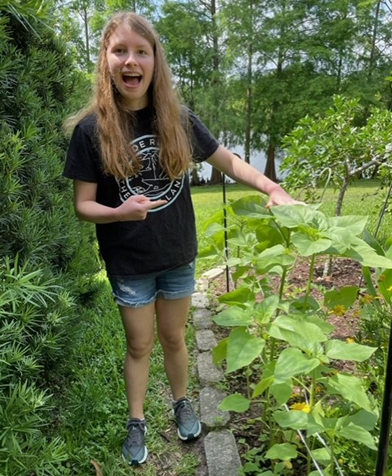
Emily is a sophomore majoring in Biology on an Ecology, Evolutionary, and Conservation Biology track. She is interested in mammalogy, biodiversity, fibromyalgia, and how genes influence animal behavior. Emily has previously worked with river otters, ticks, and warblers. She is currently researching the genetics behind bird migration.
-
Mitchell Dyen, Undergraduate Student Researcher
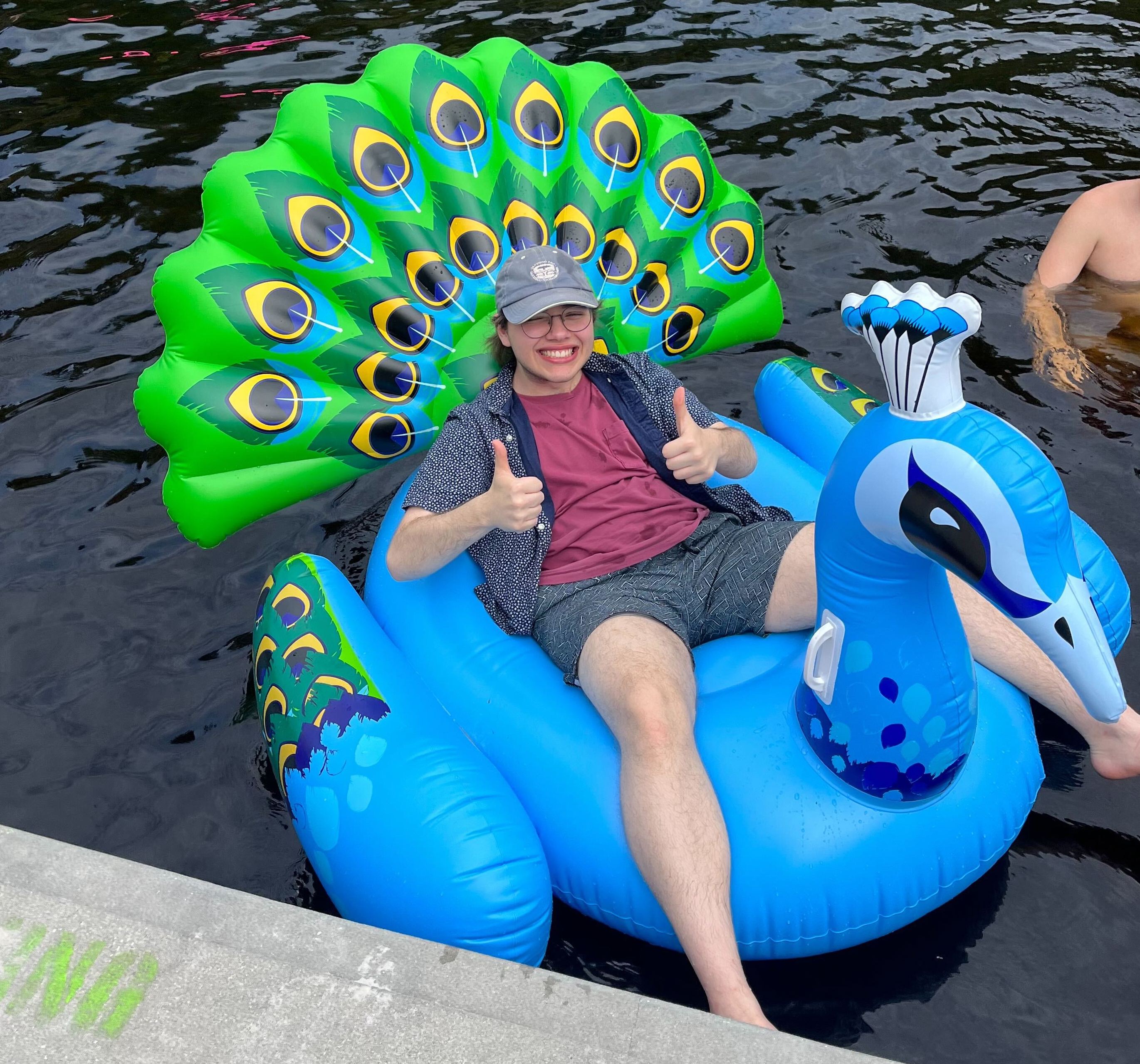
[Written by ChatGPT] In the realm of Mitch, a noble warrior with a mind as sharp as the finest elven steel, his interest in biochemistry burns like the flame of an ancient dragon. Through countless tomes and arcane texts, he delves deep into the mysteries of life's alchemical essence, seeking to understand the intricate dance of atoms and molecules. But amidst his scholarly pursuits, an unexpected foe emerges from the shadows—a sinister army of bloodthirsty ticks. These vile creatures, like stealthy assassins, threaten the health and well-being of the realm's inhabitants. Mitch, with his unwavering determination, vows to vanquish this menace and unleash a healing light upon the land. With the heart of a true hero, he embarks on a quest to master the healing arts, to become a medical doctor who can cure the afflicted and protect the realm from the terrors that lie within. Armed with his knowledge of biochemistry and the might of his sword, Mitch's destiny unfolds as he forges a path that intertwines science, magic, and the timeless oath to preserve life.
-
Dr. Alexander Ochoa, Postdoc
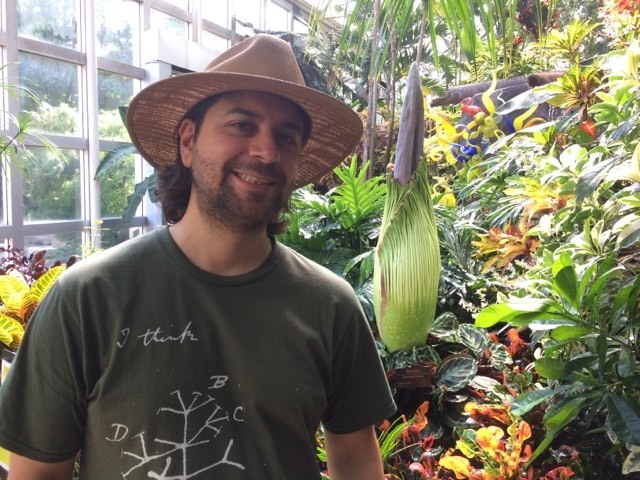
Current Position: Research Associate; Yale University
Alex obtained his B.S. from the National Autonomous University of Mexico, where he studied the genetic effects of recent habitat fragmentation on the endangered Perote ground squirrel (Xerospermophilus perotensis). He then obtained a PhD in Natural Resources (with emphasis in Wildlife Management and Conservation) from the University of Arizona, where he focused on topics related to population genomics/genetics of endangered wildlife, particularly of Florida panthers (Puma concolor coryi), jaguars (Panthera onca), and Arabian oryx (Oryx leucoryx). After completing his PhD, Alex concluded a three-year postdoctoral appointment at the Ohio State University, where he studied genomics and venom gene evolution of the threatened Eastern Massasauga rattlesnake (Sistrurus catenatus). As a postdoctoral scholar in the Fitak Lab, Alex will continue research with population genomics questions associated with wildlife management and conservation. In his spare time, Alex enjoys watching movies, camping, and playing soccer.
-
Kenicia Johnson, NSF REU Undergraduate Student Researcher
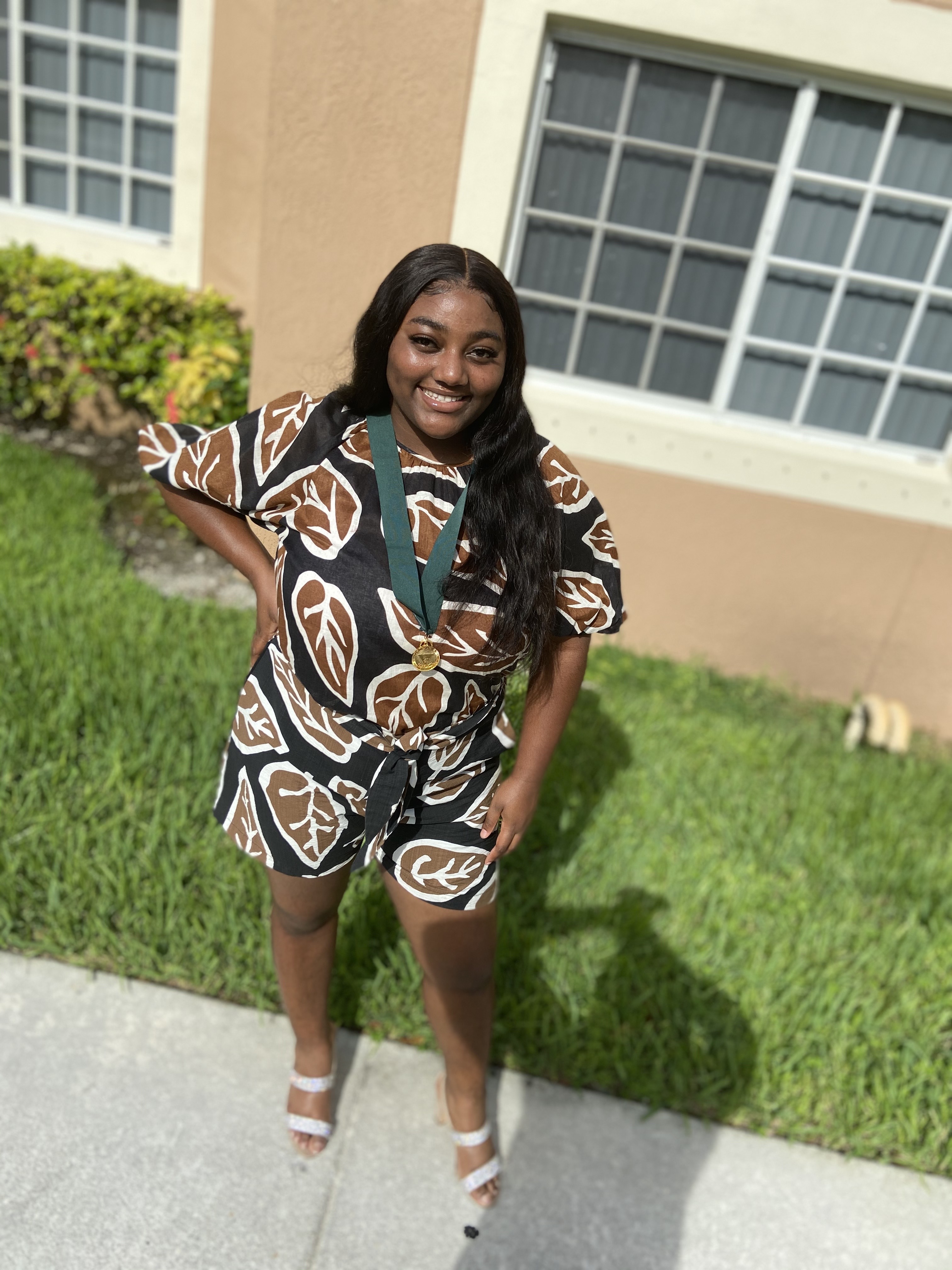
Current Position: Undergraduate Student, Florida A&M University
Kenicia is a 3rd-year undergraduate student at Florida Agricultural and Mechanical University majoring in Animal Science. She conducted research in the Fitak Lab as part of the 2023 Summer Research Experience for Undergraduates (REU) program. Her experiences include hands-on care and husbandry with livestock species, as well as marketing and production. Since then, Kenicia has wanted to expand her knowledge and experience in potential careers and branches of animal science, including wildlife conservation since it's something she has come to enjoy. In the future, Kenicia plans on continuing to do research and/or pursue a Masters in Ecology or Animal Behavior and Nutrition. In her spare time, Kenicia likes to read books, write, enjoy nature, sing, and play instruments.
-
Elizabeth Sharkey, Undergraduate Student Researcher
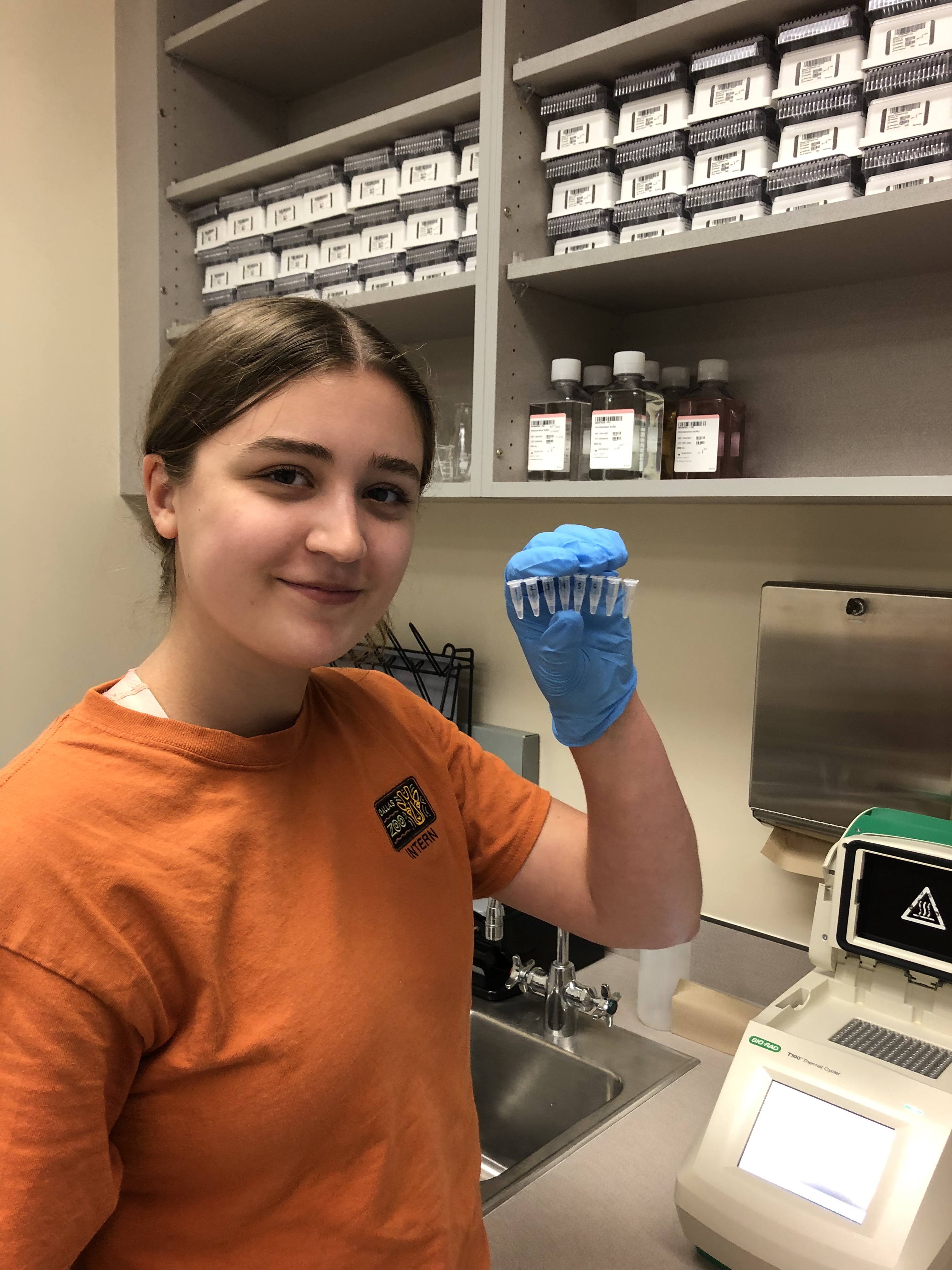
Current Position: Graduate Student, Washington University in St. Louis
Elizabeth is a student at Oregon State University. She conducted research in the Fitak Lab as part of the 2022 Summer Research Experience for Undergraduates (REU) program. Her research focused on Florida panther prion gene variation and susceptibility to prion disease. Past experiences include being a primate intern at the National Zoo and doing movement ecology research at the University of Maryland. In the future, she’d like to continue genetic research with a focus on primates.
-
Shyra Shung, Undergraduate Student Researcher
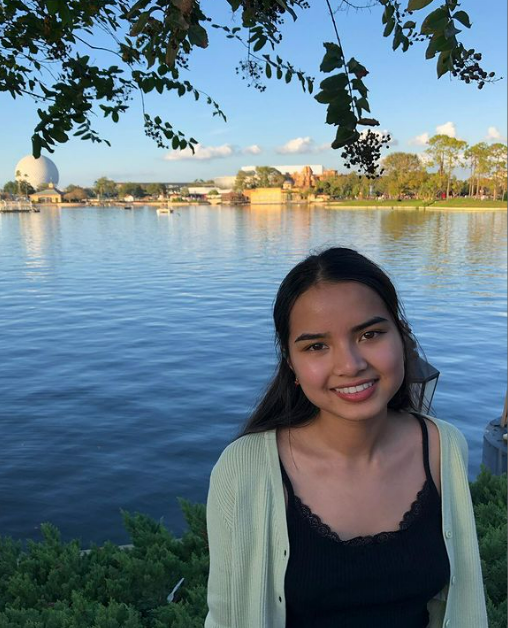
Shyra was a Biomedical Sciences undergraduate at UCF and graduated in 2022. Her interests include dental medicine and magnetoreception's role in animal migration. After graduating from SSC with an Associate of Arts degree in biology, she worked closely with UCF and SSC to host workshops garnered towards transfer students in the pre-professional majors. She joined the Fitak Lab in the Spring 2021 semester, where she tested primers to be used to detect the mamK gene from MTB in animal samples. After graduating from UCF, Shyra wants to pursue a Doctorate in Dental Medicine. In her spare time, she likes to paint with acrylic and has an avid interest in horror movies.
-
Annabelle Levin, Undergraduate Student Researcher
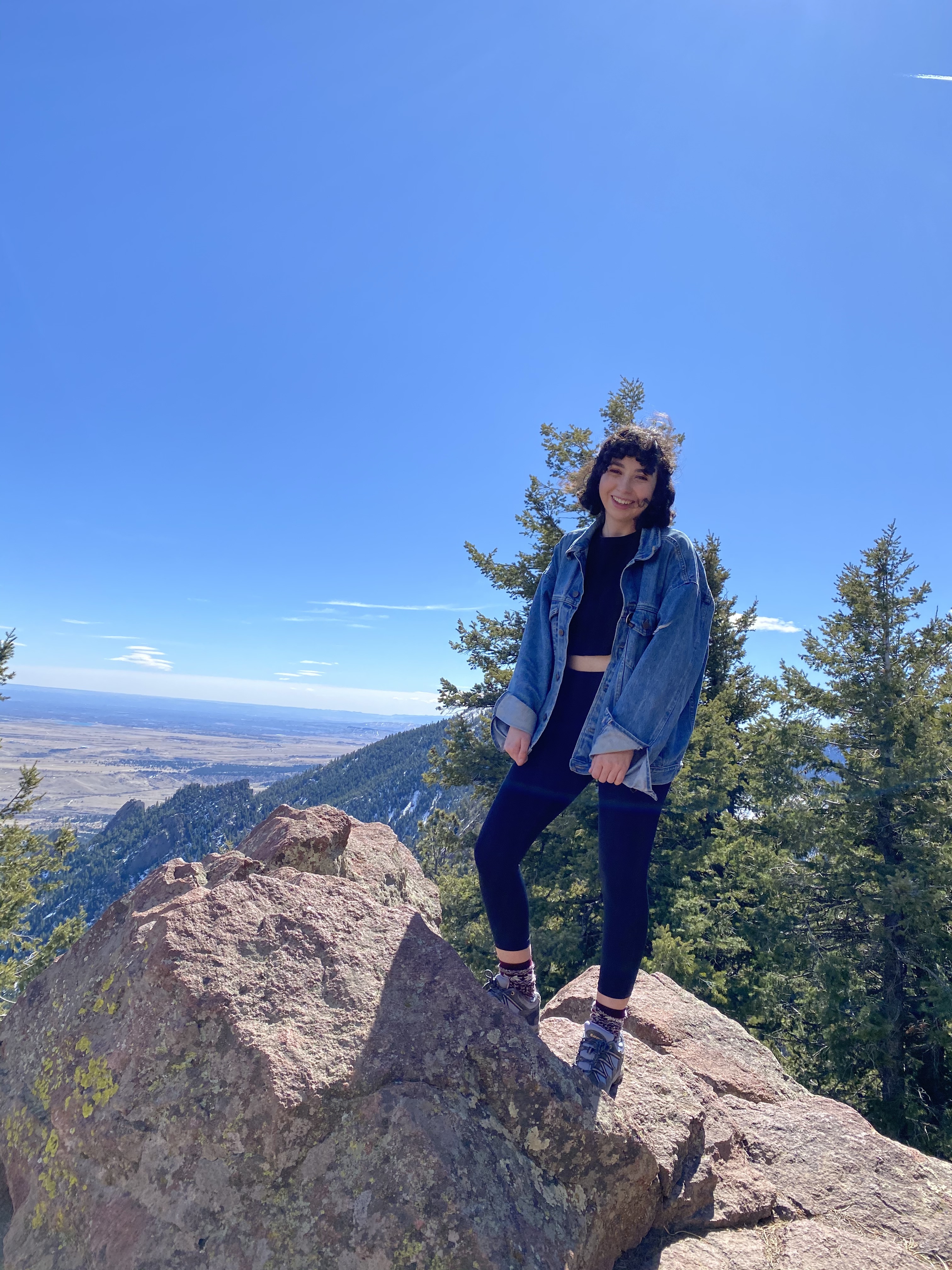
Current Position: Graduate Student, University of Washington
NIH Post-baccalaureate PREP student; Glaunsinger Lab; UC Berkeley (2022-2023)Annabelle is a sophomore studying Biology with a minor in music. She is interested in learning more about how magnoreception works in animals by investigating the distribution of a particular insertion/deletion in the CACNA1D protein across animals. This inserion/deletion has been previously linked to a magnetic sense in pigeons. Annabelle plans on attending graduate school in the future to study infectious diseases.
-
Jessica Scales, Undergraduate Student Researcher
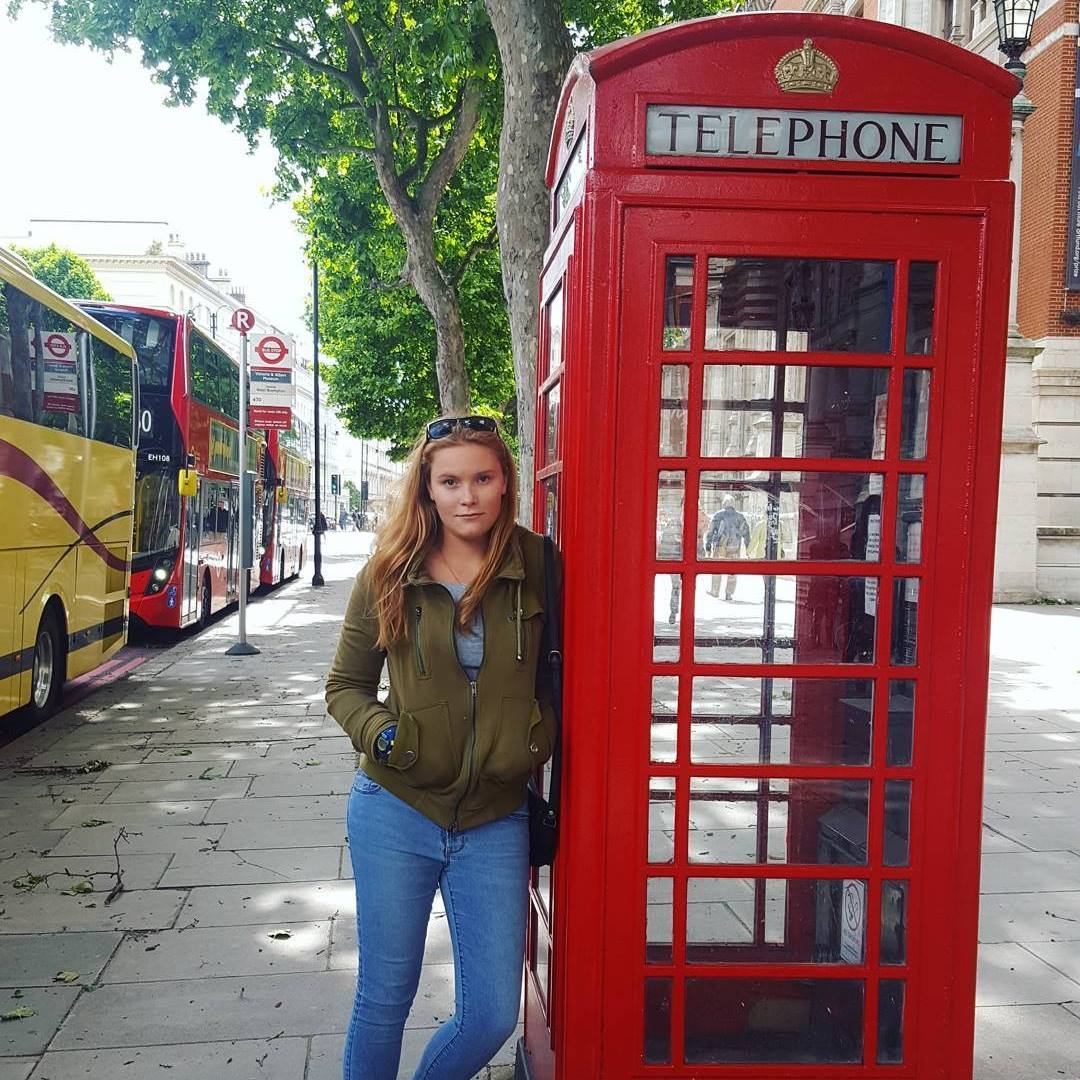
Current Position: Graduate Student; Good Lab; University of Montana
Laboratory Technician; Ferris Lab; Tulane University (2022-2023)Jessica is a senior biology undergraduate minoring in environmental studies. She is especially interested in using drone mapping to aid environmental ecological and genomics studies in increasing the protection of coral reefs and other coastal ecosystems. She also works with Dr. Timothy Hawthorne in sociology as a team member of Citizen Science GIS, which aims to make science more accessible and understandable between communities and scientists. Her current research involves looking at the infectious diseases that impact the American alligator using currently existing genomic data.
-
Liz Boggs, Undergraduate Student Researcher
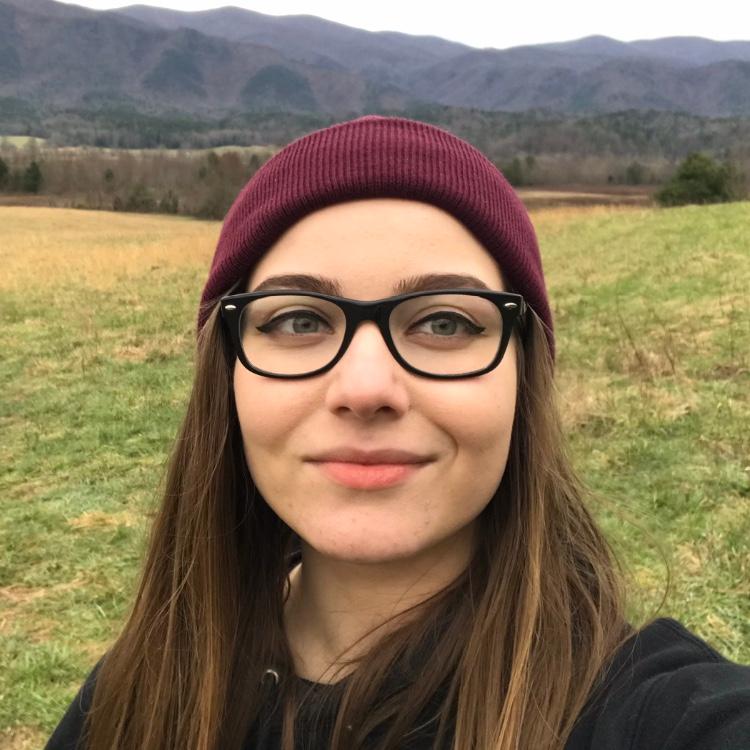
Current Position: Graduate Student; School of Aquatic & Fishery Sciences; University of Washington
Liz graduated from UCF with her B.S. in Biology in 2020, having conducted & participated in research in three different labs, as well as completed animal care internships at the New England Aquarium and Walt Disney World. During her time in the lab, she completed her Honors Undergraduate Thesis (remotely, due to the COVID-19 pandemic) using raw genomic data to investigate a symbiotic magnetic sensing hypothesis in fish. After graduating, she became a temporary lab technician in the Fitak lab to broaden this research to a wide variety of organisms found in the NCBI SRA database. Liz then moved to Seattle, WA and became an Aquarist at the Seattle Aquarium to take time working in animal care before returning to academia. She is now a graduate student at the University of Washington School of Aquatic & Fishery Sciences (SAFS) in the Marine Population Genomics lab, conducting genomic research on Puget Sound & WA Coast rockfish populations to inform management, policy, and outreach to recreational fishers.
-
Coral Robson, Undergraduate Student Researcher
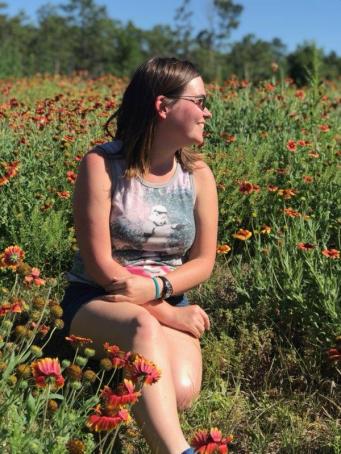
Coral was a Biology undergraduate with a minor in chemistry. Her interests are in wildlife disease and medicine, specifically in relation to species native to Florida. Her current research involves investigating infectious diseases affecting burrowing owl populations through the de novo discovery of pathogens from existing genomic data. Her goal is to use this information to help develop improved conservation management of the burrowing owl populations. When she has time, she paints animals and scenery using watercolors.
-
Anthony Hevia, Undergraduate Student Researcher
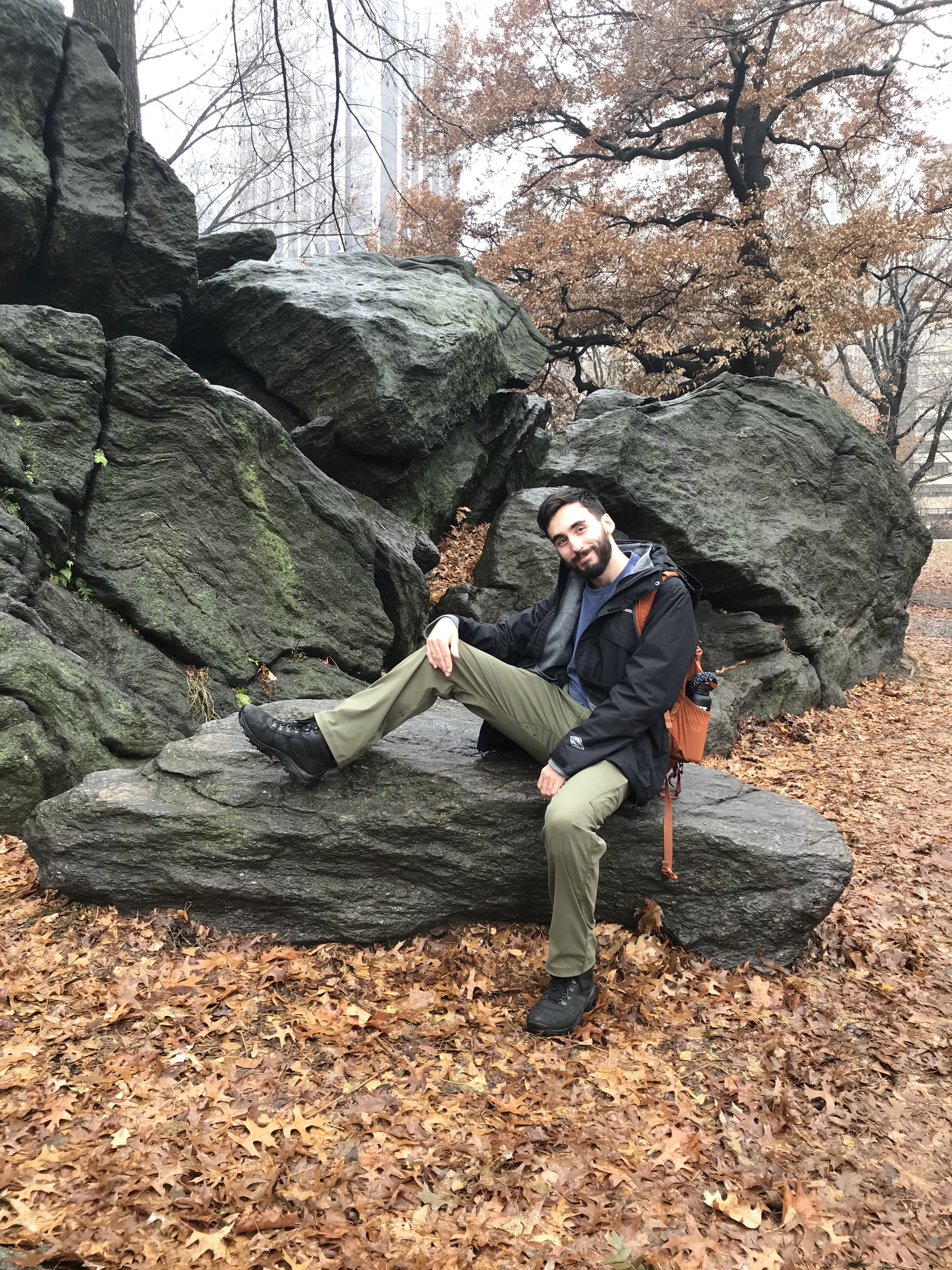
Current Position: Software Engineer; Microsoft
Anthony was a Computer Science undergraduate with a background in artificial intelligence, software development, and machine learning. His current research interests involve utilizing recent advancements in AI and Machine Learning to better understand wildlife and how to protect them. Anthony currently works for Microsoft.
-
Arimar J. López Limas, Undergraduate Student Researcher
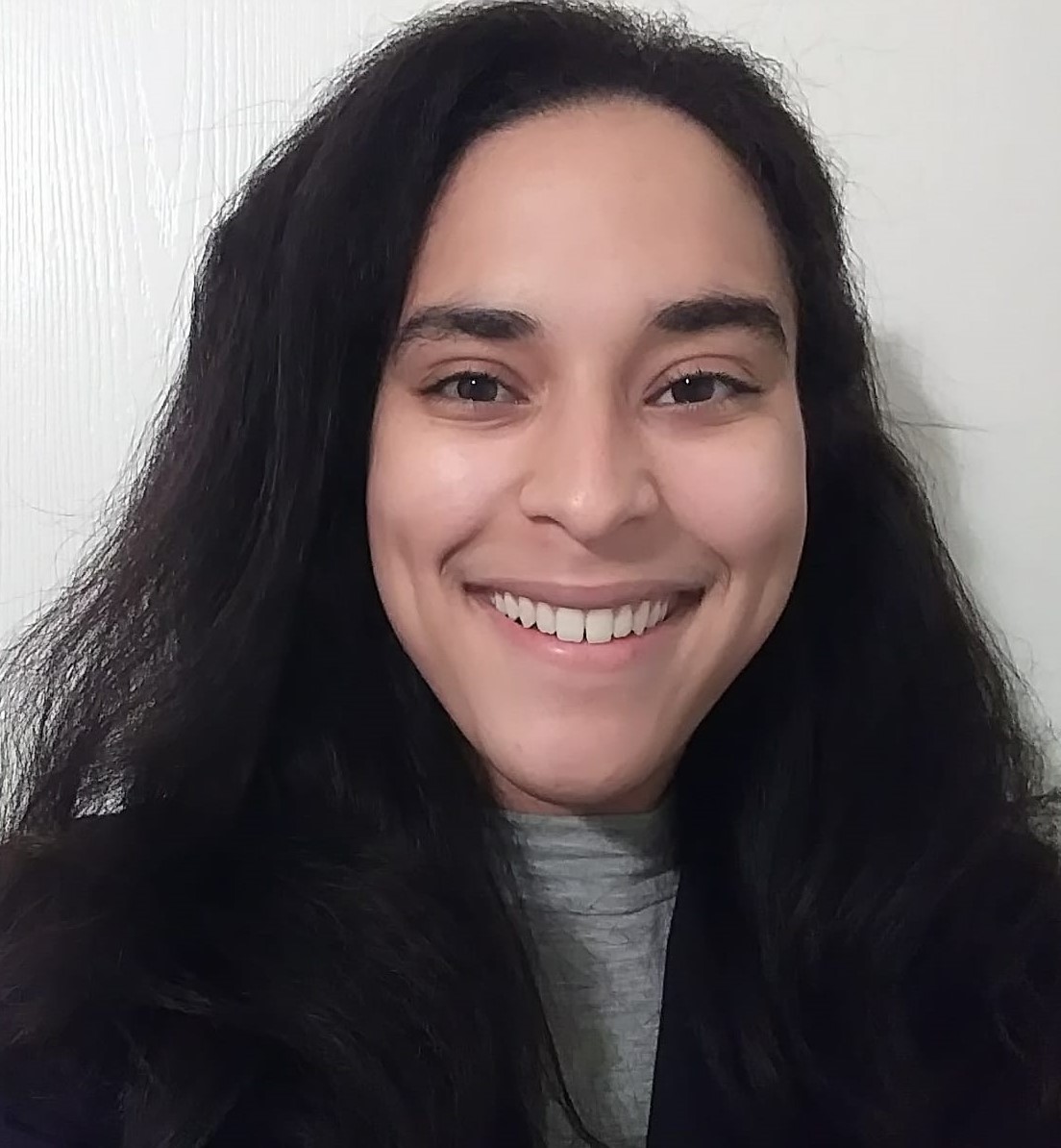
Current Position: MPH Student; Department of Epidemiology; University of Florida
Arimar is a senior Biology undergraduate in the Pre-Vet/Zoology track at UCF. She transferred from the Pontifical Catholic University of Puerto Rico-Ponce Campus (PUCPR) in Spring 2018 after being displaced by Hurricane María. As an undergraduate at PUCPR, Arimar worked as a General Chemistry I peer mentor, and as a clerical assistant in the Encarnación-Valdés Library. She also interned at a private veterinary clinic in Ponce. Since Spring 2018, Arimar has been volunteering as an usher at the Iglesia Victoria en La Cruz, where she congregates regularly. She joined the Fitak Lab and the Honors Undergraduate Thesis Program at UCF in the Spring 2020 semester. Currently, her research project aims to characterize the visual system of lone star ticks using transcriptomics. In other words, do male lone star ticks have the machinery to see the characteristic yellow spot on females? After graduating from UCF, Arimar wants to pursue a Doctorate in Veterinary Medicine and eventually specialize in canine/feline practice.
You can learn more about Arimar and her experiences as an undergraduate Here.
